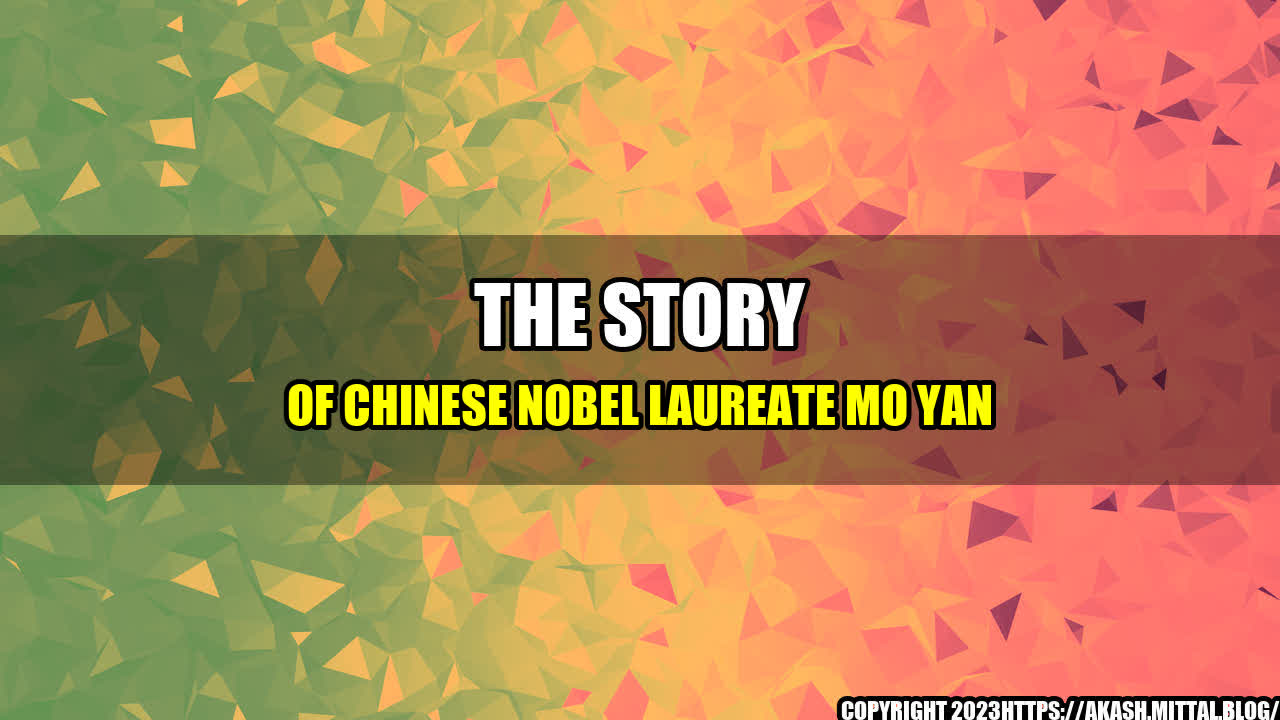

Mo Yan is a Chinese novelist and screenwriter who won the Nobel Prize in Literature in 2012 "for his hallmarks of the Chinese novel". He was the first Chinese national to be awarded the prize in that category and the second Asian. His real name is Guan Moye, but he writes under the pen name Mo Yan, which means "don't speak" in Chinese. He chose this pen name as a reminder to himself to always listen more than he talks.
"I think the essence of Chinese literature is rooted in the marvellous. Reality can disappoint us and even hurt us, but the marvellous can always bring us delight. In the context of the marvellous, the epic, the myths, the legends, the folktales, the ballads, the operas all become paradoxically true. The marvellous creates a form of new realism, a new reality, and thus embodies the spiritual essence of Chinese people."
Mo Yan's writing style is characterized by its rich storytelling, vivid descriptions, and critical social commentary. His works often explore themes of history, culture, politics, and human nature, and offer unique insights into Chinese society. He is best known for his novel "Red Sorghum", which was later adapted into a critically acclaimed film. Other notable works include "Big Breasts and Wide Hips", "The Garlic Ballads", and "Life and Death Are Wearing Me Out".
Mo Yan's contribution to Chinese literature is invaluable. He has not only created an impressive body of work that has been widely read and appreciated both in China and around the world, but he has also inspired a new generation of Chinese writers to embrace their literary traditions and explore new frontiers.
Mo Yan's influence extends beyond the literary world. He is a vocal advocate for the protection of traditional Chinese culture and the environment, and has been actively involved in various cultural and educational initiatives. He has also spoken out on social issues such as corruption, inequality, and censorship in China.
Mo Yan's success has also helped to promote Chinese culture and literature on the global stage. His Nobel Prize win brought international attention to Chinese literature and inspired more translations of Chinese works into other languages. He has also been invited to speak at various literary events around the world, and has served as a cultural ambassador for China.
Mo Yan has shared many insights and advice on writing and life over the years. Here are three points that he often emphasizes:
Mo Yan is a celebrated writer, cultural figure, and Nobel Laureate who has left a significant mark on Chinese literature and society. His rich storytelling and critical commentary have offered unique insights into Chinese culture and history, and his advocacy for traditional culture, the environment, and social justice has made him a beloved figure in China and beyond. His advice on writing and life continues to inspire and guide a new generation of writers.
Curated by Team Akash.Mittal.Blog
Share on Twitter Share on LinkedIn